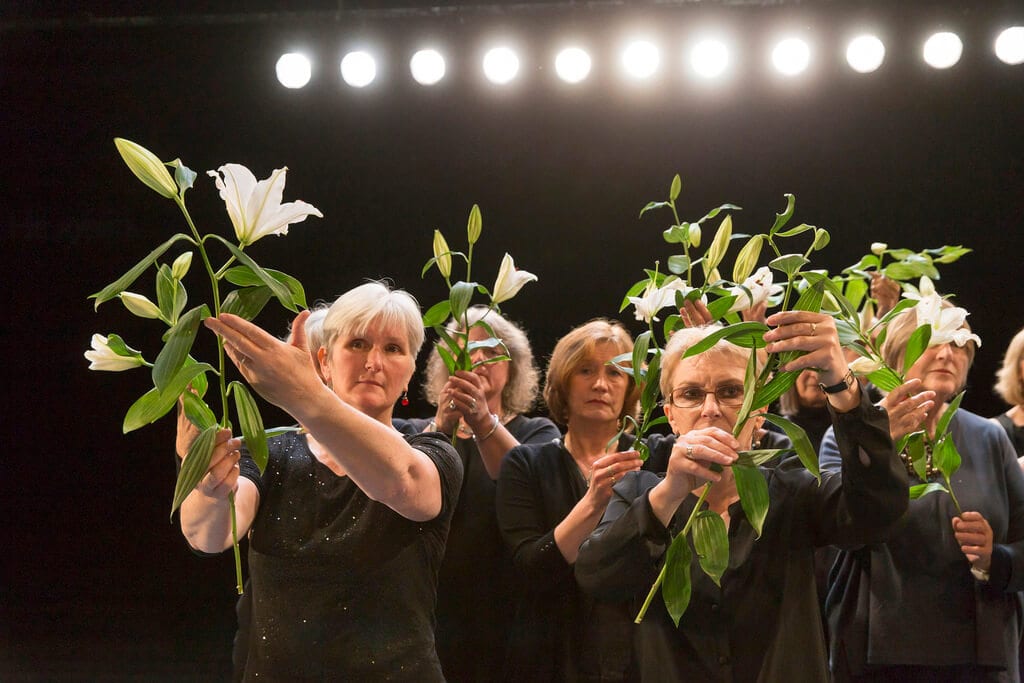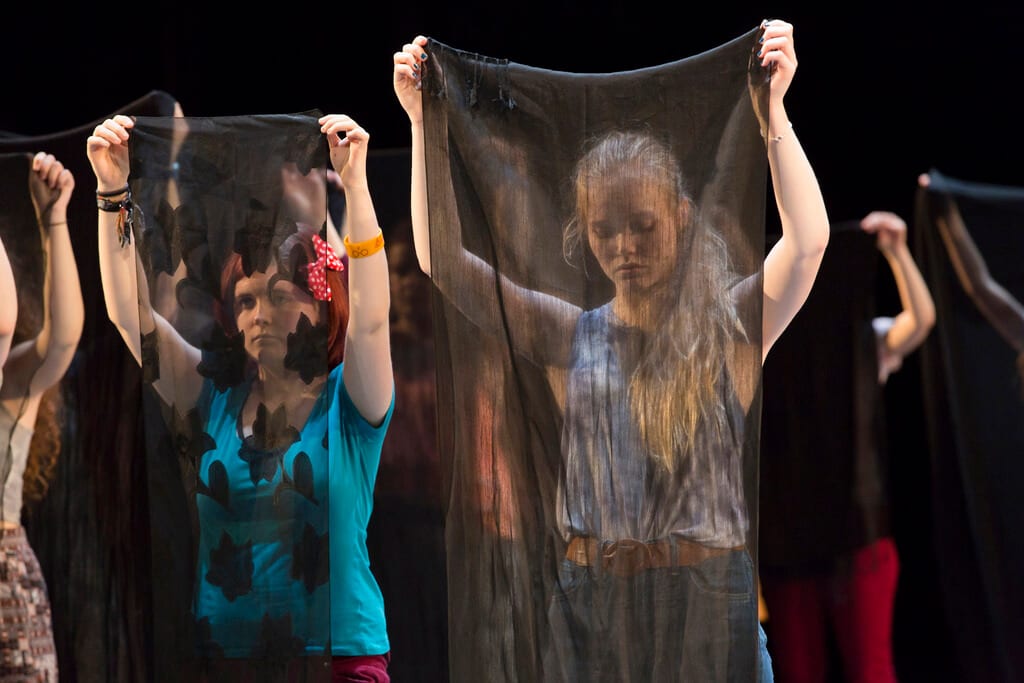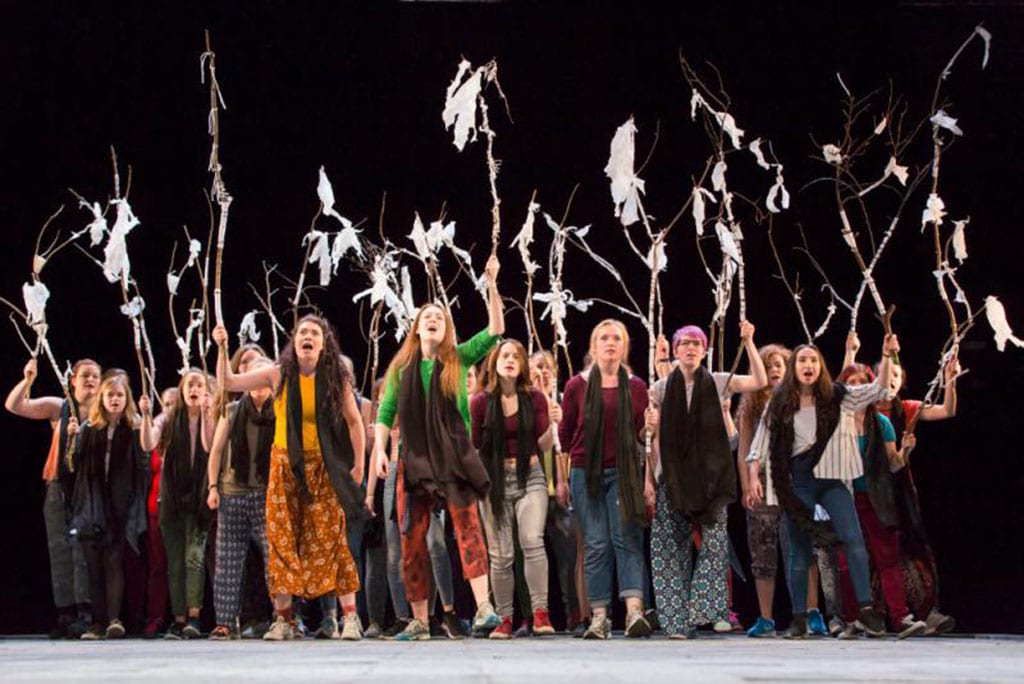A boat-load of fifty female refugees fleeing the Middle East washes up in Argos, Greece, seeking asylum. This is not the latest episode of the tragic migrant crisis, but the plot of Aeschylus’ play The Suppliant Women, written 2,500 years ago in Greece. The women face forced marriage to their cousins in Egypt if they remain and so travel to Argos to find refuge.
First glance at the subject matter and promotional poster for the play (a half-submerged woman waving a modern life-jacket) suggest that it will be heavy in references to current affairs. Certainly the story would need little updating to be a powerful critique of contemporary events.
However, the play is instead presented as a tale of female power and solidarity in the face of rape and persecution, a no-less relevant modern concern. The Chorus, composed of young volunteers drawn from the local community, stand, move and speak together. As a group they contract and expand across the bare stage with fluid movement and chant defiance at their male persecutors.
The men in the play are a mixed bunch. The father of the women, Danaus (Omar Ebrahim), plots their escape while the King of Argos, played by Oscar Batterham, is a more ambivalent character. He is initially reluctant to offer sanctuary before passing the buck and insisting the matter is decided by public vote. After the vote in favour his demeanour changes and he becomes a powerful and committed protector of the suppliant women against the Egyptian men who come to claim then.
It is in the character of the king that current political events are most clearly embodied. He appears in the guise of a modern politician, standing out in his suit while surrounded by actors in neutral costume. His flip-flopping attitude to the asylum-seekers and certain choices in the translation of the text are the only real nods to the migrant crisis.
The text itself remains at the heart of the piece and its carefully choreographed vocalisation stands out strongly against the stripped-back stage. Large portions are chanted rhythmically by the Chorus and these chants linger in the mind long after the play has finished. Even the dialogue is delivered with a sing-song rhythm, giving the whole production a powerful musical quality.
This musical quality is enhanced by the use of simple percussion and an ancient Greek instrument, the aulos. They provide a strong rhythmic base for the chanting and are rarely absent, helping to fill the theatre with sound. They contribute to the production’s attempt to immerse the audience in a performance which does not seek to recreate the ancient Greek theatre of Aeschylus’ time, but does successfully evoke the feeling and sensations of it.
It is not the music which is the focus though, nor the few male characters. The star of the show is undoubtedly the Chorus, a strong group of women standing up to the fiery torches of their persecutors with a sea of glittering candles. They sing and chant, dance and process together, ably led by Chorus Leader Gemma May.
The Suppliant Women is an inventive and compelling piece, and what it lacks in polish it more than makes up for in commitment. The play’s messages that ‘everyone feels some kindness to strangers’ and that there should be ‘equal power to all women’ should be heard by many throughout Edinburgh.




